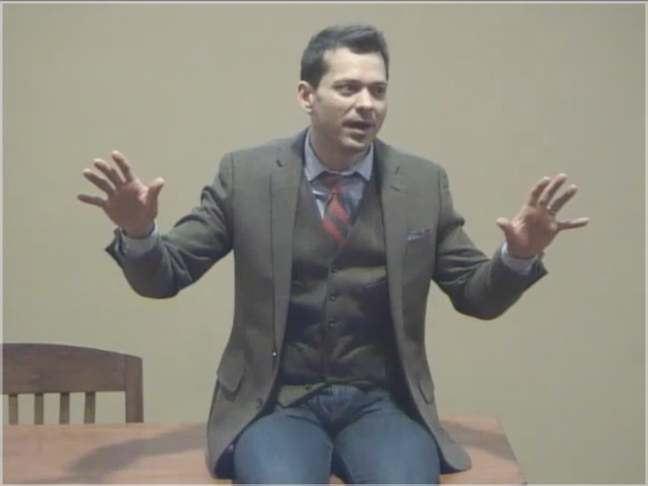You just can’t have your cake and eat it too, especially when it comes to making sustainable decisions — at least according to Joe Arvai, the University of Michigan Max McGraw Professor of Sustainable Enterprise.
During a Thursday lecture hosted by the University of Wisconsin’s Center for Sustainability and the Global Environment, Arvai gave a presentation on his owner’s manual for decision-making.
Entitled “Decision-Making for Sustainability: An Owner’s Manual,” Arvai offered insights regarding how to improve the quality of personal and policy choices to keep pace with society’s growing sustainable needs.
Humans struggle with decision-making because our biases can place a disproportionate amount of importance on particular aspects of life, Arvai said.
Using the example of two differently sized cups of ice cream — one large that’s semifull, the other small and overflowing — Arvai demonstrated that even with an equal price, consumers will prefer the small cup because they feel like they are getting a better deal.
“Awareness of your biases is important,” Arvai said. “Contrary to popular belief, high-quality information does not lead to better decision-making.”
Ideological barriers can also get in the way of good decision-making, Arvai said.
In 2001, former President George Bush declared a “War on Terror,” as he deemed it the “biggest threat to America” even though, statistically speaking, declaring a war on the nation’s crumbling infrastructure would have saved more lives, Arvai said.
To repair this cognitive dissonance, Arvai proposed better balance of the emotional and the cognitive, or the reflexive system with the reflective system. To go back to the ice cream example, Arvai said the cup’s fullness can “push emotional hot buttons.”
His second method of improving decision-making lies in strengthening the consistency between decision quality and internal values, he said.
While working at the University of Calgary, Arvai heard another professor thought removing oil from the Alberta Tar Sands was OK because of Canada’s existing “stellar” environmental record.
In response, Arvai came up with a hypothetical gas pump menu, serving gas from different countries that were ranked on price, environmental impact, human rights record and overall environmental human performance score.
Through this model, he said people could make improved decisions because they would be internally consistent with their beliefs.
The final part of Arvai’s owner’s manual on decision-making related to being explicit about conflicting objectives and the need to confront tradeoffs — meaning you just can’t have your cake and eat it too.
“Ignore sunk costs and be willing to take a chances,” Arvai said. “Our ability to equate cognition with emotion is thrown away when we are stressed, and if we practice these strategies enough, we can all become better decision-makers.


